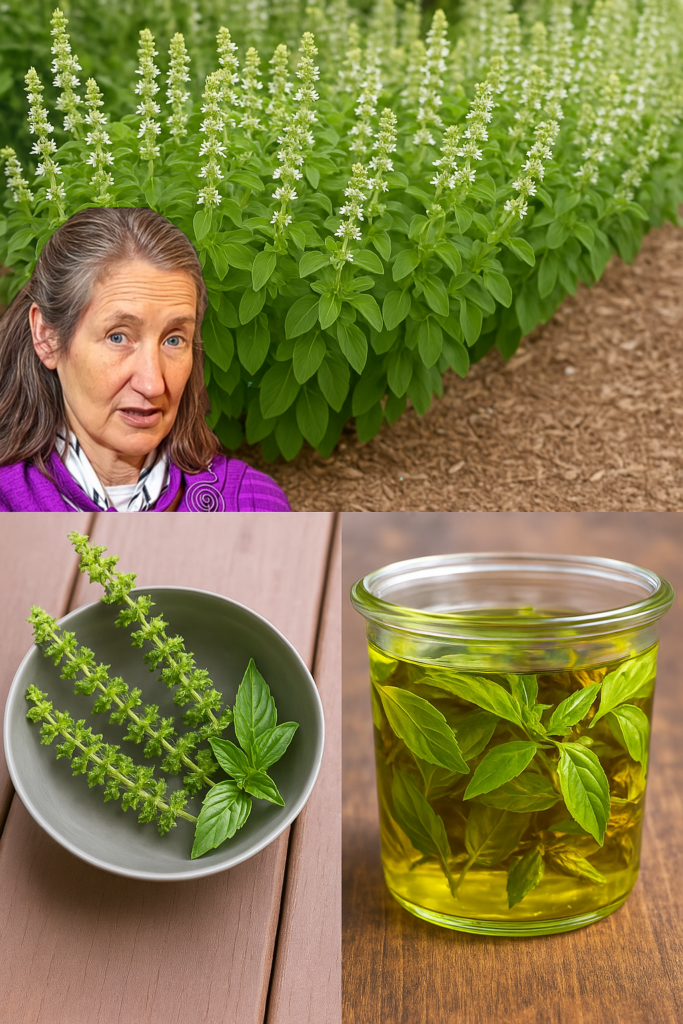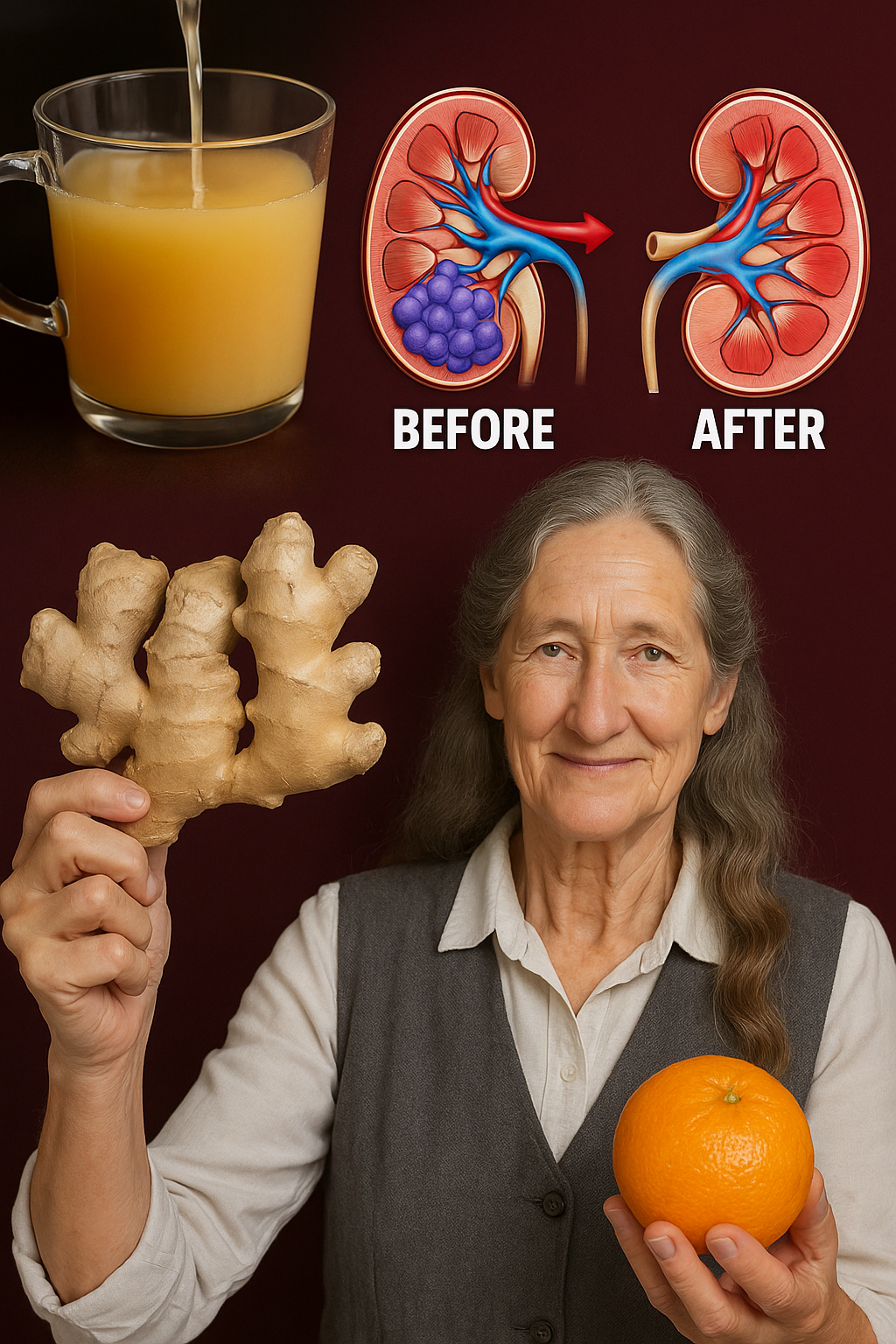If you’ve never heard of Holy Basil before, prepare to be amazed. This humble green plant, with its delicate flowers and aromatic leaves, may look ordinary at first glance—but it holds extraordinary power. Often referred to as the “Queen of Herbs” in Ayurvedic tradition, Holy Basil (Ocimum tenuiflorum, also called Tulsi) has been used for thousands of years to heal the body, sharpen the mind, and even uplift the spirit.

But why is modern science now catching up to what ancient cultures already knew? Why is Holy Basil suddenly appearing in herbal teas, tinctures, skincare products, and even stress-relief supplements?
Let’s dive into the world of Holy Basil and discover how this sacred herb can transform your health naturally—without relying on synthetic medications.
What Is Holy Basil?Holy Basil is a perennial plant native to the Indian subcontinent but now grown around the world for both medicinal and spiritual purposes. The plant in your image, with its tall flowering stalks and lush green leaves, is a mature Tulsi plant in bloom. The dried seed pods and leaves, shown soaking in oil, hint at one of the many traditional ways Tulsi is prepared to extract its potent healing compounds.
Unlike sweet basil (Ocimum basilicum) used in cooking, Holy Basil has a slightly peppery, clove-like flavor and is prized more for its medicinal properties than culinary use.
Health Benefits of Holy Basil: Backed by Science and Tradition
1. Powerful Adaptogen for Stress Relief
Tulsi is best known as an adaptogen—a class of herbs that help the body adapt to stress. Regular consumption of Holy Basil tea or extracts may help regulate cortisol levels, reduce anxiety, and balance mood naturally. If you’re looking for a natural way to improve mental clarity and reduce fatigue, this herb is worth considering.
SEO Keywords: natural stress relief, adaptogenic herbs, cortisol regulation, mental clarity
2. Anti-Inflammatory and Antioxidant PropertiesHoly Basil is rich in essential oils and phytonutrients that combat inflammation and oxidative stress. Its leaves contain eugenol, rosmarinic acid, and apigenin—compounds shown to neutralize free radicals and support immune function.
These properties make it ideal for individuals dealing with chronic conditions like arthritis, autoimmune issues, or even general fatigue from inflammation.
SEO Keywords: natural anti-inflammatory herbs, antioxidant-rich plants, immune-boosting remedies
3. Supports Respiratory Health
In traditional medicine, Tulsi is often used to treat respiratory issues such as asthma, bronchitis, and congestion. It works as a natural expectorant, helping to clear mucus and improve airflow. Whether used in teas, oils, or tinctures, Tulsi provides gentle but effective respiratory support.
SEO Keywords: herbal remedy for asthma, natural treatment for bronchitis, herbs for lung detox
4. Natural Immune Booster
Tulsi has antimicrobial, antiviral, and antifungal properties that make it a powerful immune ally. Especially during flu season or periods of low immunity, a daily Tulsi tea or tincture can help ward off illness and strengthen your body’s defenses.
SEO Keywords: natural immune booster, herbal flu prevention, antiviral herbs
5. Blood Sugar and Heart Health Support
Emerging research shows that Tulsi may help regulate blood sugar levels and support heart health by lowering cholesterol and blood pressure. While not a replacement for medical treatment, it can be an excellent supplement for those seeking holistic support for metabolic health.
SEO Keywords: herbs for blood sugar control, natural remedies for high cholesterol, heart-healthy herbs
How to Use Holy Basil at Home
There are many ways to incorporate Holy Basil into your wellness routine:
- Herbal Tea: Brew fresh or dried leaves in hot water for a calming tea
- Tulsi Oil: As shown in your image, infuse fresh flowers and leaves in a carrier oil like olive or coconut oil. Use it topically for skin irritation, joint pain, or massage therapy
- Tinctures and Extracts: Available at most health food stores, these offer a concentrated form of the plant for daily supplementation
- Capsules and Supplements: Convenient for daily use, especially if you don’t enjoy the taste of herbal tea
Is Holy Basil Safe?
Generally, Holy Basil is considered safe for daily use. However, individuals who are pregnant, breastfeeding, or taking blood-thinning medications should consult a healthcare provider before adding it to their routine.


